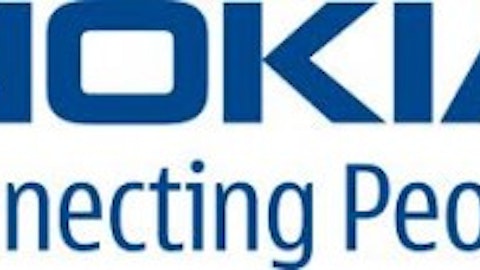“The King is dead! Long live the King!” is a pronouncement that has its foundations as far back as 13th century England, and is based on a principle adopted to avoid civil war: upon the death of the reigning monarch (then, Henry III), the monarch’s heir (then, Edward I) is considered to immediately ascend to the throne, leaving no period where there is no legitimate ruler (Edward was fighting in the Crusades at the time of his father’s death, hence was unavailable for an immediate coronation). Thus, the saying both announces the passing of the dead monarch, and the assurance that there is still in place a living monarch.

Why is that curious?
What is a tablet, other than one of the more recent evolutions of the personal computer, along with smart phones, laptops, and netbooks? Is the PC dead or not?
What Dean no doubt meant was that the desktop PC was “dead,” in that people were moving away from that large box that took up so much desk space (unless you were clever enough to put it on the floor, or on a separate stand), and gravitating towards smaller devices – devices that could be carried around, allowing one to work (or do whatever one does with one’s PC) wherever one wanted to do it.
(Although there were actually “transportable” computers as far back as the early 1980’s – one-piece computers that weighed in the neighborhood of 20 pounds or so. I still have my Kaypro 10, made by the now-defunct Kaypro Corporation, which still works, believe it or not, although I do not use it anymore. The computer has lasted longer than the company did.)
Is the desktop PC dead? Is it dying? Is it even sick? I think not, and neither do several major computer manufacturers.
IBM is no longer the de facto PC standard, having sold its PC division to China-based Lenovo Group Limited (NASDAQOTH: LNVGY) in 2005; there are, however, still some manufacturers that produce desktop PCs, although they are farsighted enough to also produce the more up-to-date manifestations – or at least some of them. In fact, Lenovo produces desktop computers (among many other things) and maintains operational headquarters at IBM’s former Morrisville, North Carolina, center.
Dell Inc. (NASDAQ:DELL) is another company that, while expanding its business to include the production of laptops, netbooks, and tablets, still manufactures desktop PC’s, and is one of the stalwarts of desktop units. Dell strengthened its position in the desktop area in 2006 with the acquisition of Alienware, a specialty manufacturer of gaming PCs that Dell operates as a subsidiary. Potential investors are advised that head honcho Michael Dell has made no bones about his desire to take his company private, however. (Indeed, as of Feb. 6, 2013 it has been determined that Dell may take his company private.)
Hewlett-Packard Company (NYSE:HPQ) is another stalwart of the desktop computer, although its forte is the printer; at least, when I worked in retail the easiest printer to sell was the HP – generally high quality and a wide range of prices and capabilities. Its computers are harder sells, although this might in part be because there are a lot of computers that compare favorably to HP’s. Furthermore, while they have offered laptops for a long while, they are only now getting into the tablet fray, and their offerings do not inspire enthusiasm. There have been suggestions that HP would do well to sell off some of its components, the PC business included, but this is unlikely. Its shares have been moving upwards aggressively as of this writing.
Apple Inc. (NASDAQ:AAPL), like Lenovo, spreads its products across the spectrum of computing devices; in many ways Apple Inc. (NASDAQ:AAPL) has, in fact, lead the pack in terms of stretching the computer to new realms. Its offerings include desktops, laptops, tablets and phones, all cleverly commercially cross-cultivated by the ubiquitous “i” that precedes its product names. Some highly touted releases last year (updates of the iPad and the iPhone) helped drive Apple Inc. (NASDAQ:AAPL) shares to a high of $702.10 on Sept. 19, 2012, but the shine has faded to the tune of -35%, to a price of $453.62 as of this writing (Feb. 6, 2013).
That there may be some weakness in the desktop PC market can be seen in the fact that sales of Apple Inc. (NASDAQ:AAPL)’s iMac were lower than expected last year; there is no doubt that the range of alternatives to the desktop is bound to take some of the market away from it. That is to be expected. There are only so many computers that can be sold, and only so many people that want one; and if a tablet is all a person needs, why spring for more than that? (I’d have sold my soul for something like a tablet PC when I was in college.)
Are desktops dead or dying? No. Will they ever? Not likely.
The article The PC Is Dead! Long Live the . . . Uh . . . PC! originally appeared on Fool.com and is written by Joseph Porter.
Copyright © 1995 – 2013 The Motley Fool, LLC. All rights reserved. The Motley Fool has a disclosure policy.





